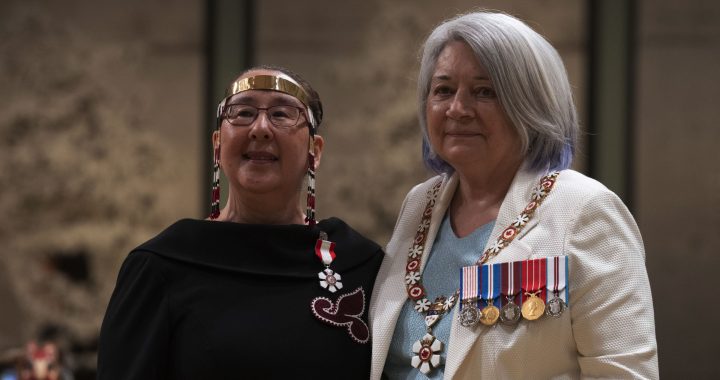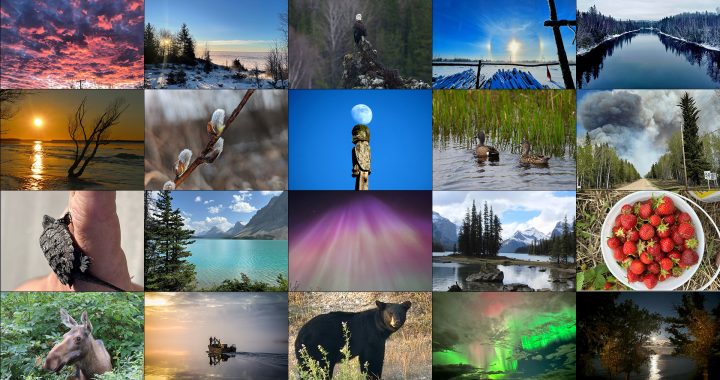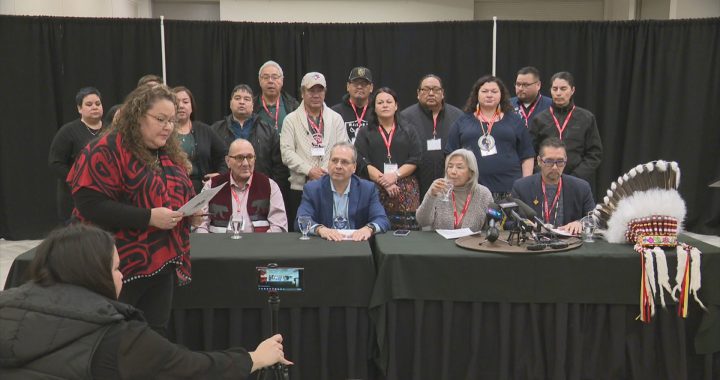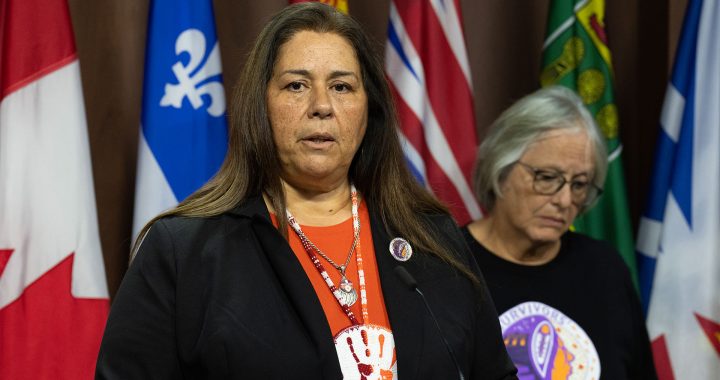Chiefs in Alaska say they weren’t consulted by the state when it came up with a new chinook salmon management agreement with Canadian officials.
“It was kind of just thrown at us,” said Rhonda Pitka, chief of the village of Beaver, located approximately 175 km north of Fairbanks along the Yukon River. “It was a big shock to me.”
Earlier this month, the Alaska Department of Fish and Game (ADFG) along with Fisheries and Oceans Canada (DFO) signed an agreement to rebuild chinook salmon stocks.
The agreement places a moratorium on commercial, sport, domestic and personal fishing. The moratorium will be in place for seven years, which is the full life cycle of a chinook salmon. It will remain in effect from April 2024 to 2030.
The goal is to allow 71,000 fish to make it to their spawning grounds in Canada – a number well above the 15,000 that made it in 2023.
During a Yukon River Panel meeting in Anchorage, Alaska last week, the agreement was largely praised by First Nations in Yukon who have been advocating for stricter measures to help protect dwindling salmon stocks.
As most First Nations in the territory are self-governing, they have an equal say to ADFG and DFO when it comes to co-managing chinook salmon.
But Pitka, who is a member of the Yukon River Panel, said it’s a different story in Alaska where the state is mostly responsible for salmon management. It also doesn’t have requirements to consult with Indigenous peoples on salmon management issues.
“It’s always been kind difficult for the administration of hunting and fishing laws,” Pitka said.
Karma Ulvi, chief of the village of Eagle at the Alaskan-Yukon border and chair of the Yukon River Inter-Tribal Fish Commission, said she was disappointed the state did not engage in consultation with Alaskan tribes before signing the agreement.
“Decisions are not made in our favor,” she said.
‘Burden of conservation’
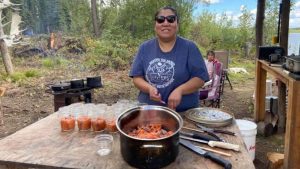
It’s not clear why stocks are depleting, though a combination of overfishing, competition from hatchery fish, habitat degradation and the effects of climate change have been named as contributors.
In response to declining numbers, Ulvi said villages in her district placed their own moratorium on chinook salmon over a decade ago.
Despite her people’s efforts, she said trawlers and intercept fisheries kill millions of salmon each year.
“We feel we are bearing the burden of conservation,” she said.
Pitka said she feels subsistence harvesting will have little impact on the salmon’s overall run size.
“We haven’t had a harvest in four years, although we’ve seen the numbers go down lower and lower,” she said.
“There is something else at play, whether it’s ocean temperatures, whether it’s predation, disease. There’s other things at play that aren’t simple to fix. That needs attention, too, and it feels like the spotlight is just on the subsistence fishermen’s harvest.”
Tribes left out
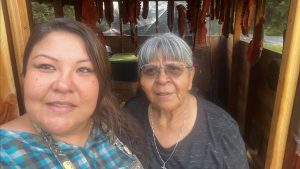
Both chiefs said they also have questions surrounding one clause of the agreement, which permits ADFG and DFO to provide limited harvest opportunities for traditional and ceremonial purposes “at their discretion.”
Pitka said the state currently provides permits for Alaskan tribal members to harvest chinook for funeral potlatches. She’s concerned those permits are now no longer guaranteed.
“That’s kind of upsetting,” she said. “I think that sometimes they deliberately leave out tribes in their processes.”
State officials did not respond to APTN News’ repeated requests for comment by deadline.
Steve Gotch, senior director of operations for DFO’s Pacific Region, said in a statement both countries have their own ways of defining ceremonial harvest opportunities.
While he couldn’t speak specifically to Alaska, he did say in the Yukon there are processes and obligations set out in Yukon First Nation Final Agreements, which requires consultation with the Yukon Salmon Sub-Committee and Yukon First Nations.
“Opportunities to harvest Chinook salmon will be informed by the number of adult fish returning to Canadian waters – which, during periods of extremely low abundance (as observed in 2022 and 2023) may not be possible to accommodate or will be extremely limited,” he said.
Read more:
U.S., Canada put 7 year ban on all forms of salmon fishing in Yukon, Alaska
As Chinook salmon season comes to end in Yukon, worry and hope for the future remains
Pitka said she would have like to have seen more clarity in the agreement.
“I think if they included stronger language in there to protect funerary and ceremonial use, that might have been useful,” she said.
Ulvi said she’s hopeful that one day there will be more collaboration with the state when it comes to salmon management.
She said the time is now for everyone to work together.
“We’d really like the wild stocks to come back and be in abundance. Whether or not that’s in my lifetime or not, I don’t know,” she said.
As for Pitka, she feels true conservation won’t happen without buy-in from tribes.
“Making these big sweeping changes is not the way to do it. You have to have a relationship with the tribes. You have to have a relationship with the people on the river.”




